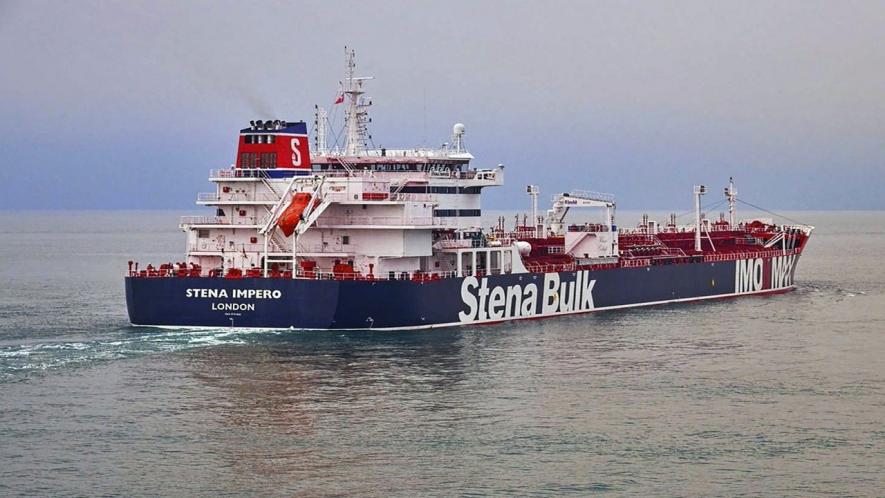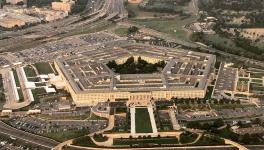Iran Hits Back, Seizes a UK-Flagged Tanker in the Strait of Hormuz

The Stena Impero is currently docked at the port of Bandar Abbas. Photo: AP
On July 19, the Iranian Revolutionary Guards Corp (IRGC) seized a UK-flagged ship, Stena Impero, in the Strait of Hormuz. Iran claims the ship was violating international maritime rules. However, the UK’s Foreign Secretary, Jeremy Hunt, termed the seizure “illegal and destabilizing.”
The ship is docked at the port of Bandar Abbas. Iran has said that all the 23 crew members are safe and healthy. They have been taken off the ship for investigation. Most of the crew are Indian, Russian, Latvian and Filipino.
Iran claimed that the Stena Impero hit a fishing ship and ignored the distress call, leading to its seizure.The UK, on the other hand, claimed that the ship was in Omanian waters when it was seized. The UK has threatened strong sanctions against Iran. Iranian ambassador to the UK Hamid Baeidinejad warned against any attempts to escalate the matter.
Ali Larijani, the speaker of the Iranian parliament, said the act was in response to “British hijacking of the Iranian Tanker.”
Labour MP and shadow justice minister Richard Burgon asked the UK to stop being a “sidekick” of the Trump administration and avoid a conflict with Iran which could be worse than the Iraq war.
The US, Germany and France have issued separate statements asking Iran to release the ship immediately.
The seizure of the Stena Impero comes after a series of events that began with UK marines seizing an Iranian tanker, Grace 1, in the first week of July off the coast of Gibraltar. The UK claimed that Grace 1 was carrying oil to Syria in violation to European Union (EU) sanctions. Iran called the seizure an act of “piracy,” claiming the tanker was not headed for Syria. Javad Zarif, the Iranian foreign minister, invoked the EU’s commitments to “extraterritoriality”, which means the EU sanctions would not be applicable on Iran because it is not a member. He claimed the act was done on behalf of the US.
On July 18, Iran announced that it had seized a Panama-flagged ship, Riah, in the Strait of Hormuz on charges of smuggling Iranian fuel. The US responded sternly, hinting that Iran was a threat to the free movement of ships and also declared its resolve to “work aggressively” with its allies in the region to guarantee the safe and free passage of oil and other commodities. The Strait of Hormuz is a crucial route through which around 20% of the world’s oil and gas exports are transported.
On July 18, the US claimed that it had shot down one Iranian drone after it came “threateningly near” its warship USS Boxer in the Persian Gulf. Iran however has denied losing any drone on the specified date.
Tensions have risen in the Persian Gulf since May 2018 when the Trump administration unilaterally withdrew from the nuclear deal signed by the Obama administration in 2015 along with Iran and five other countries. The US has since re-imposed severe economic and political sanctions against Iran, forcing it to take retaliatory measures such as the breach of limits set on its nuclear enrichment.
The US accused Iran of masterminding attacks on oil tankers on two separate occasions in May and June. On both the occasions, the US provided no proof to back its allegations.
In June, Iran shot down a US spy drone after it violated its airspace. This led to Trump claiming that he had aborted retaliatory attacks on Iran at the last moment to avoid casualties.
Get the latest reports & analysis with people's perspective on Protests, movements & deep analytical videos, discussions of the current affairs in your Telegram app. Subscribe to NewsClick's Telegram channel & get Real-Time updates on stories, as they get published on our website.
























